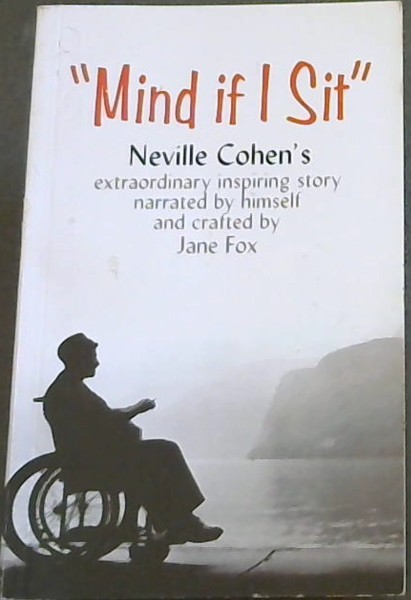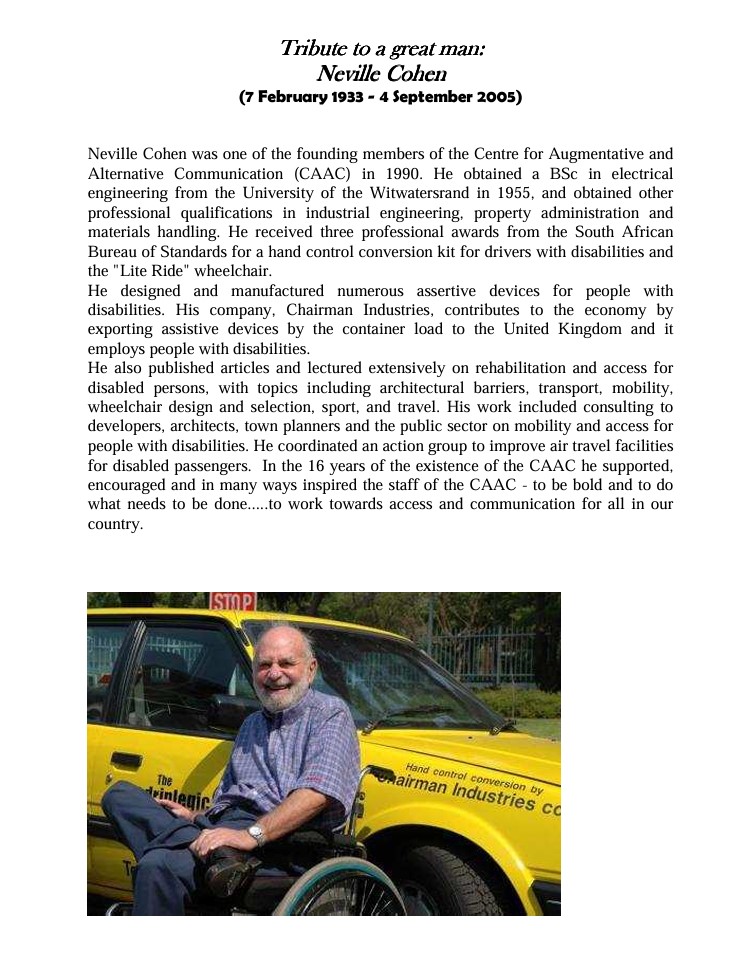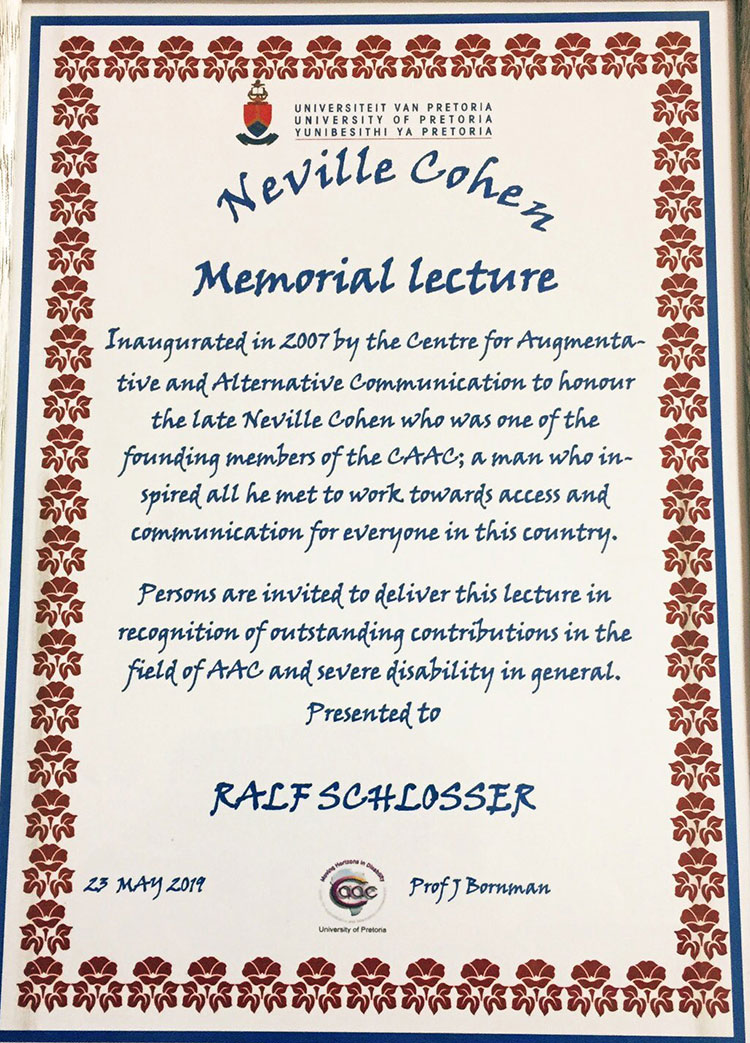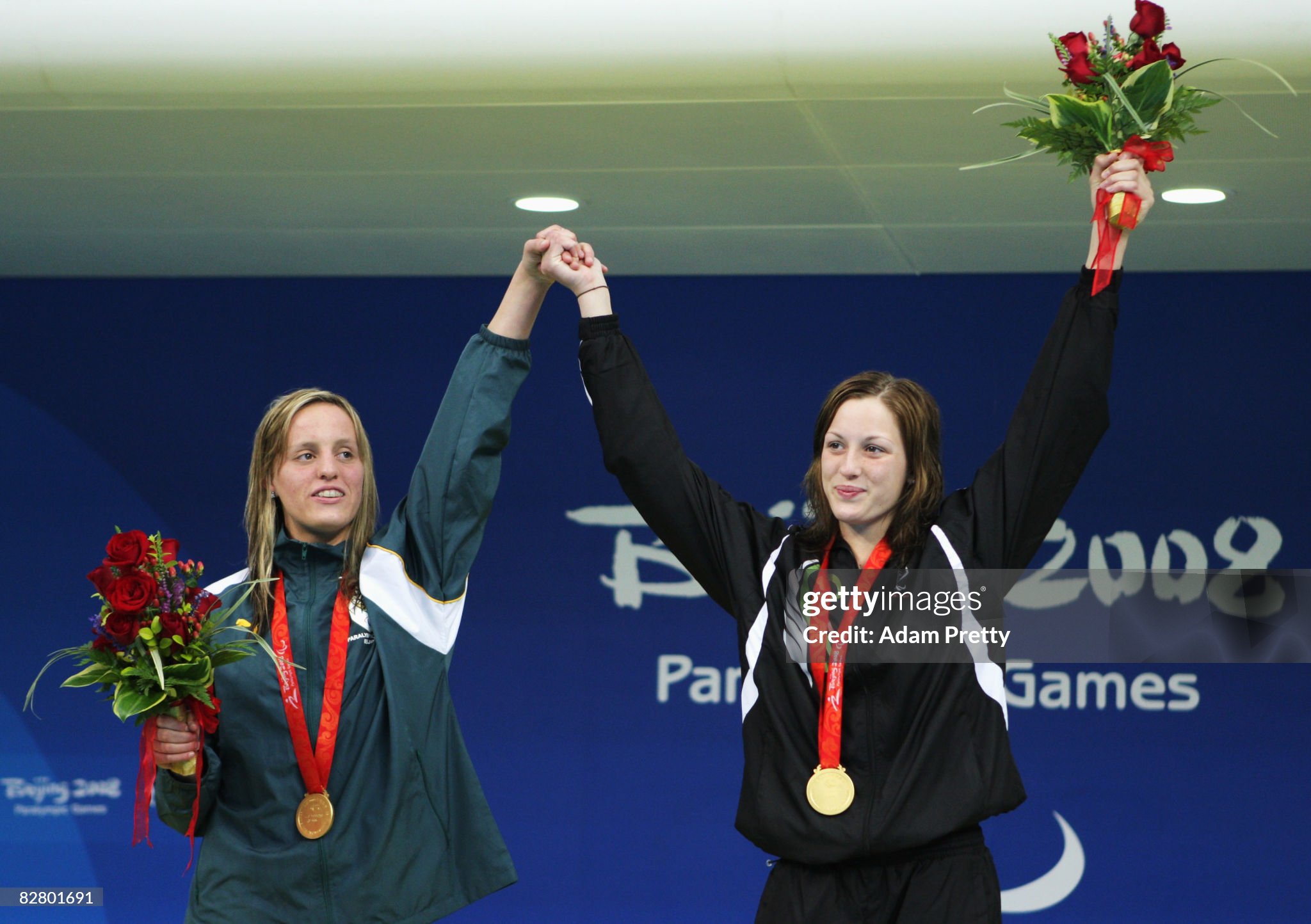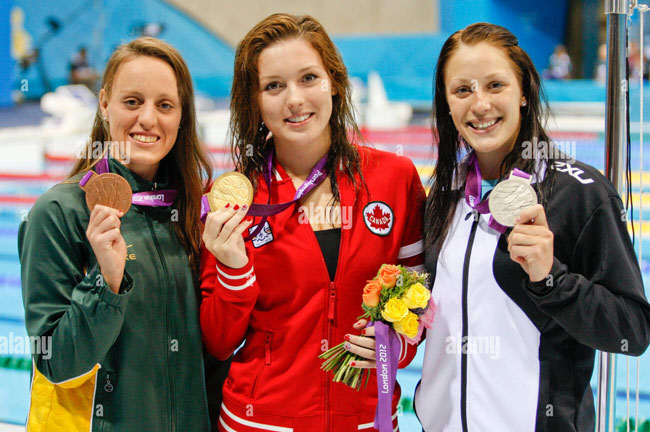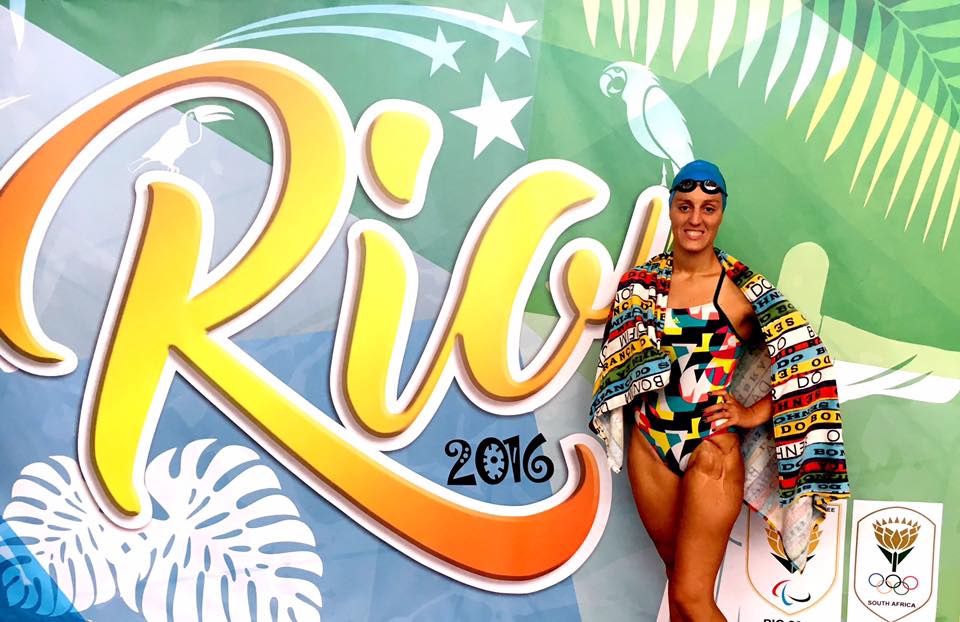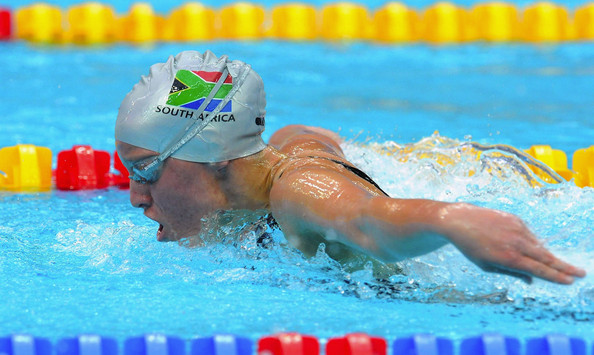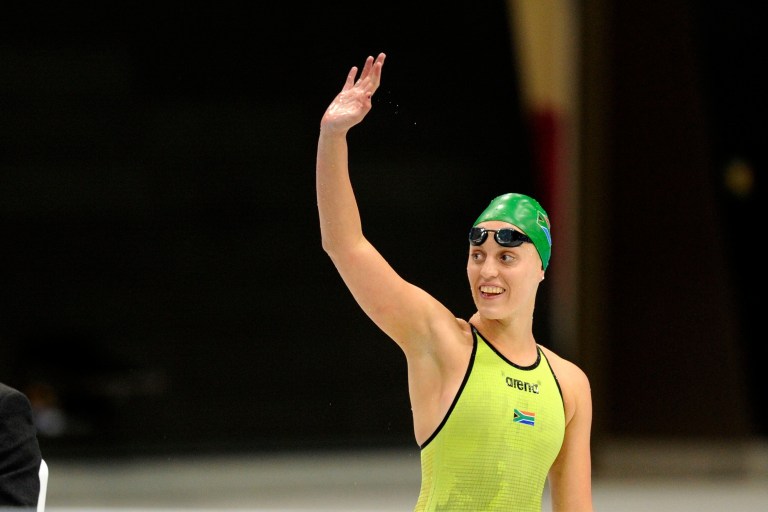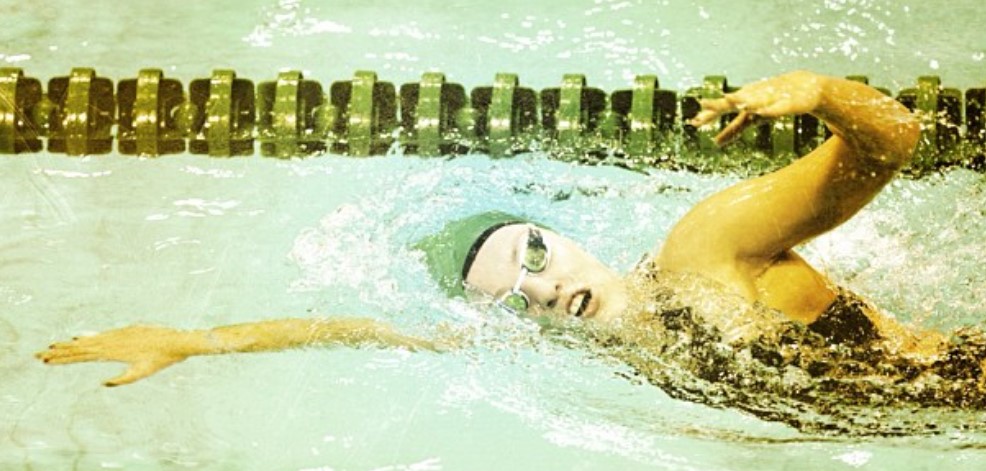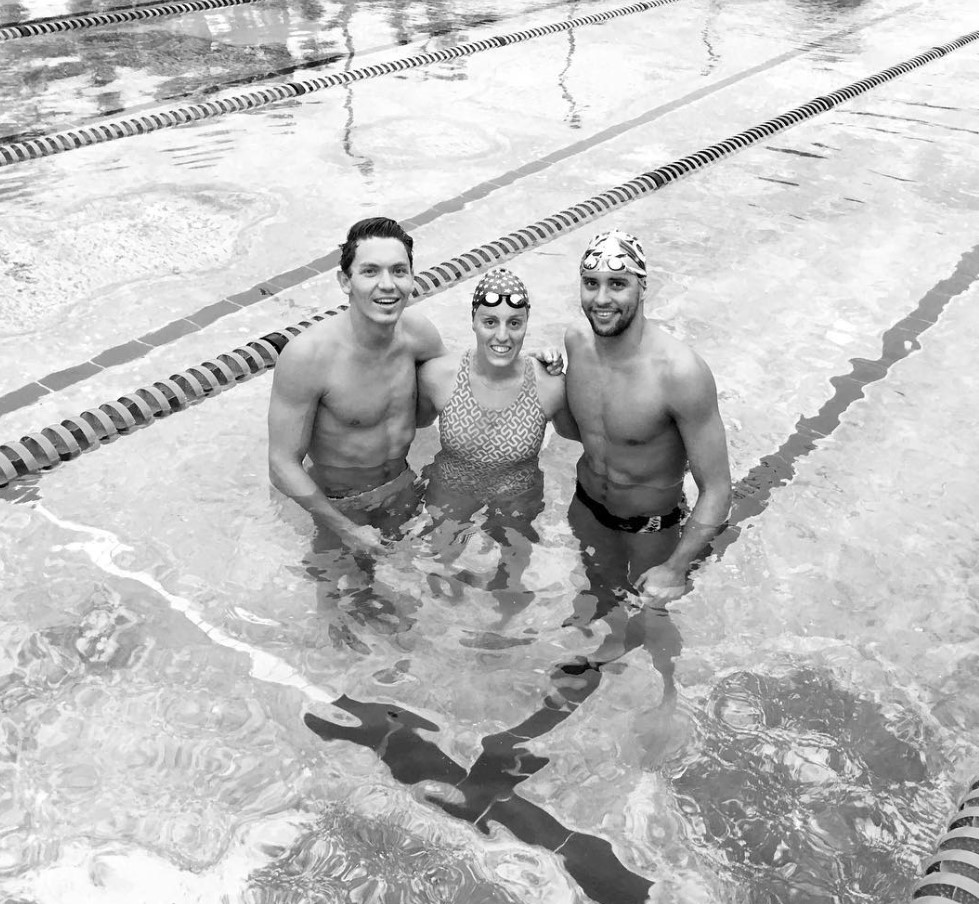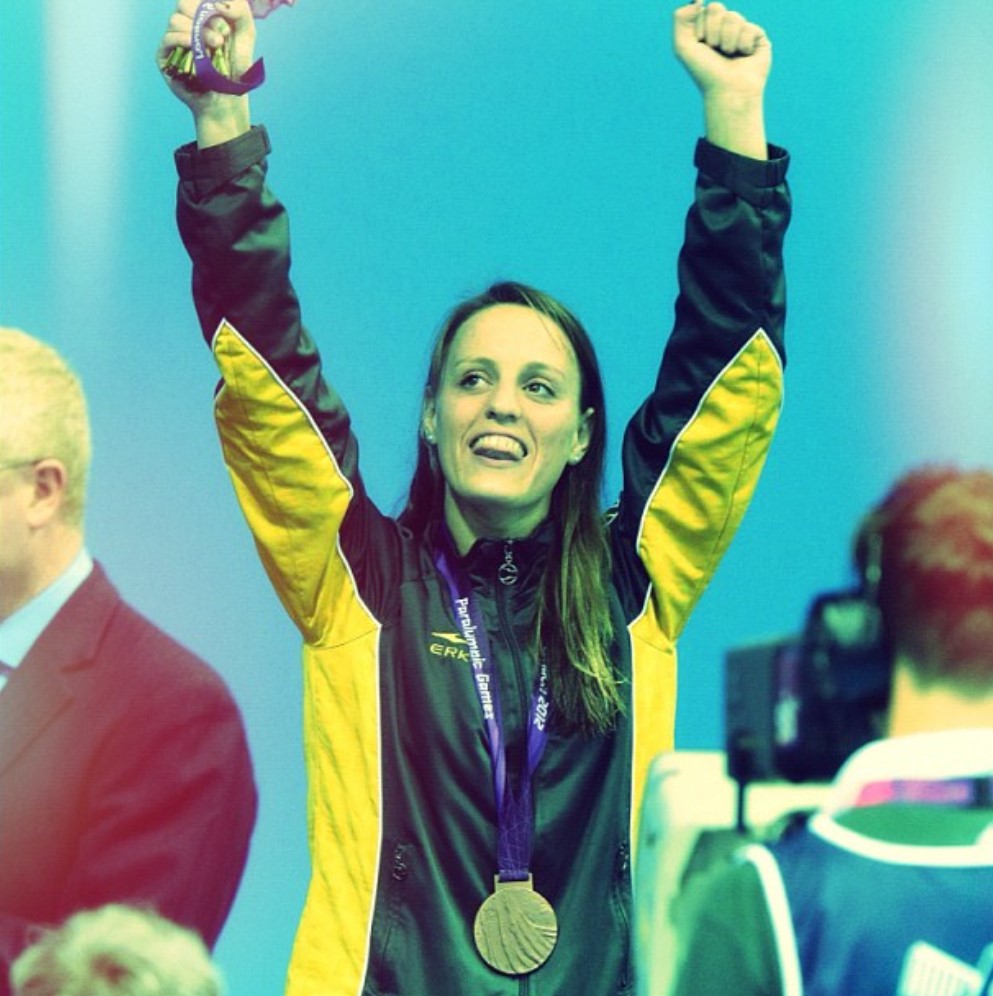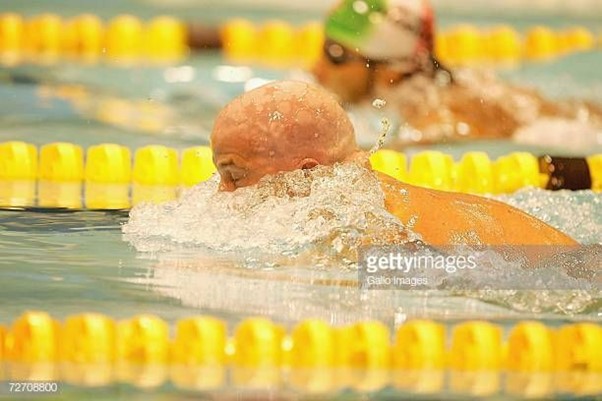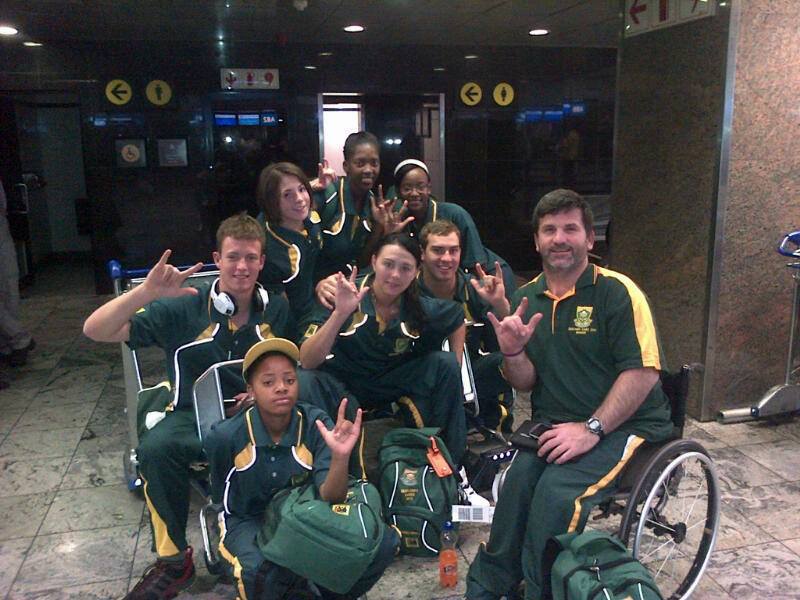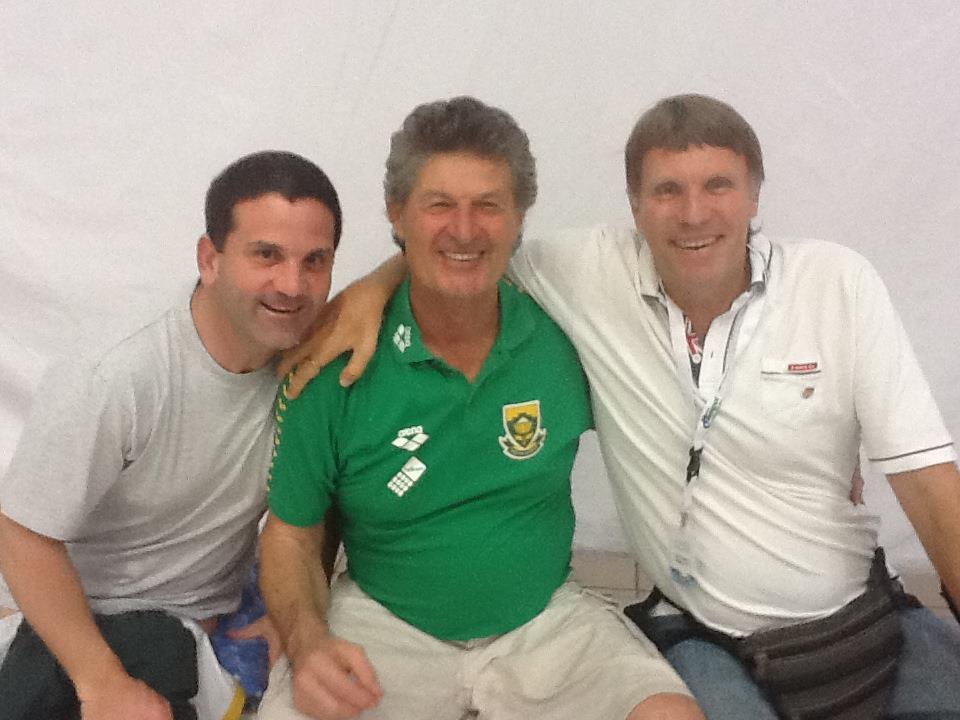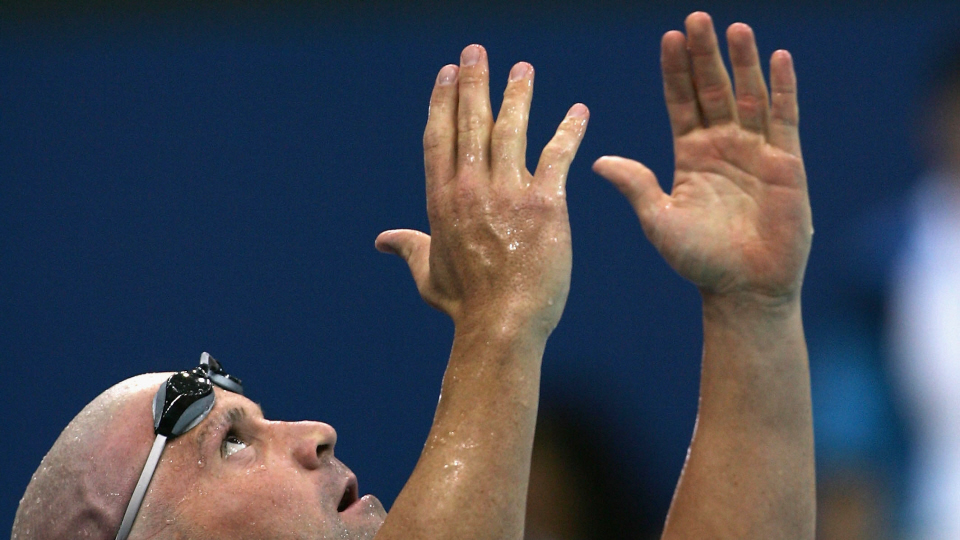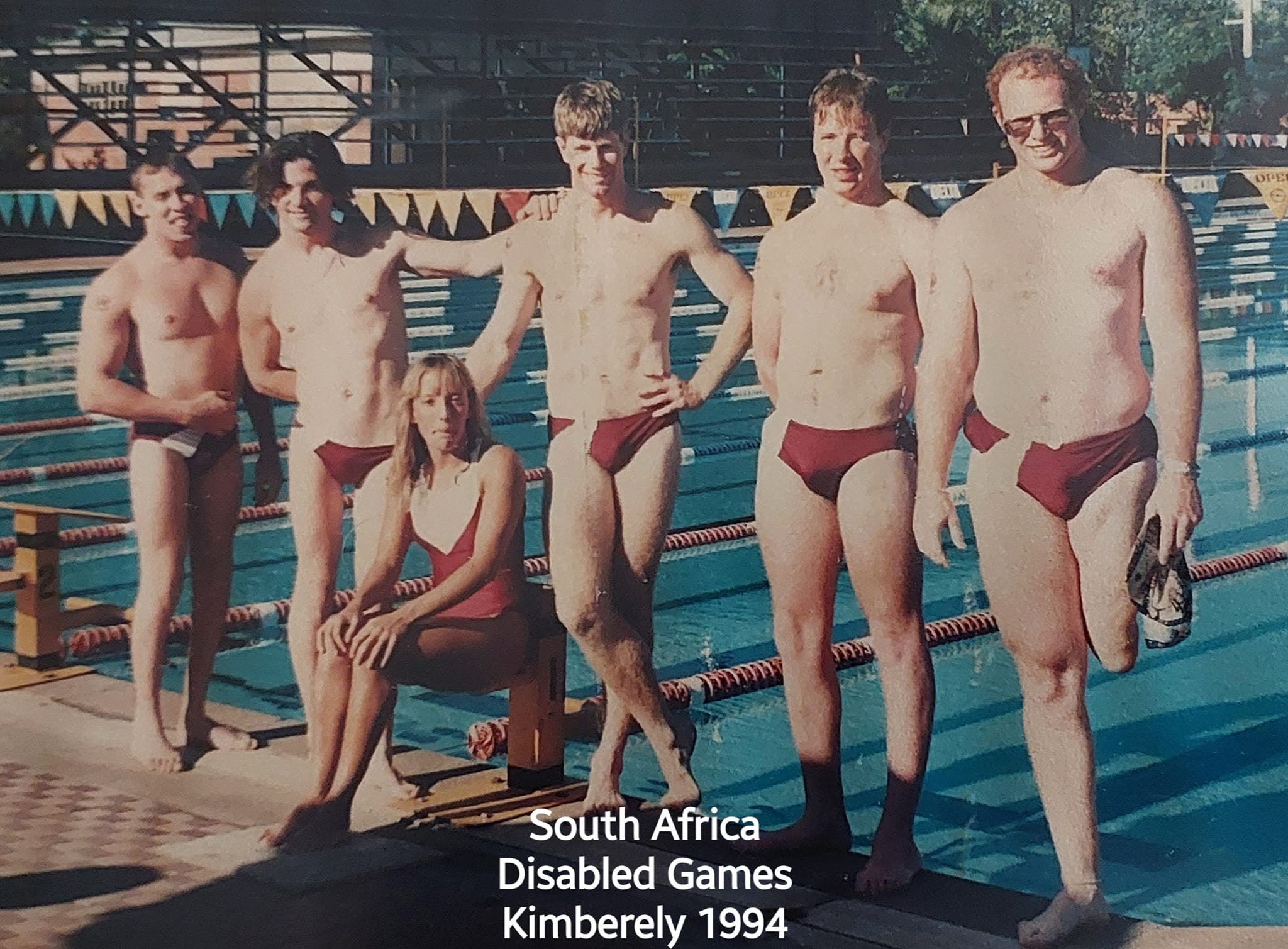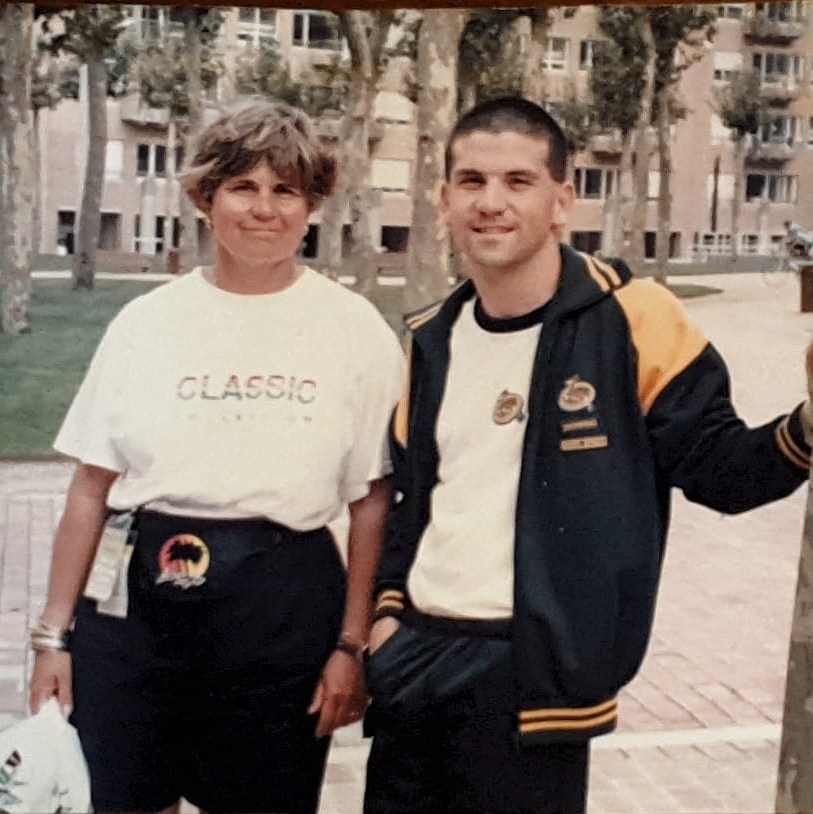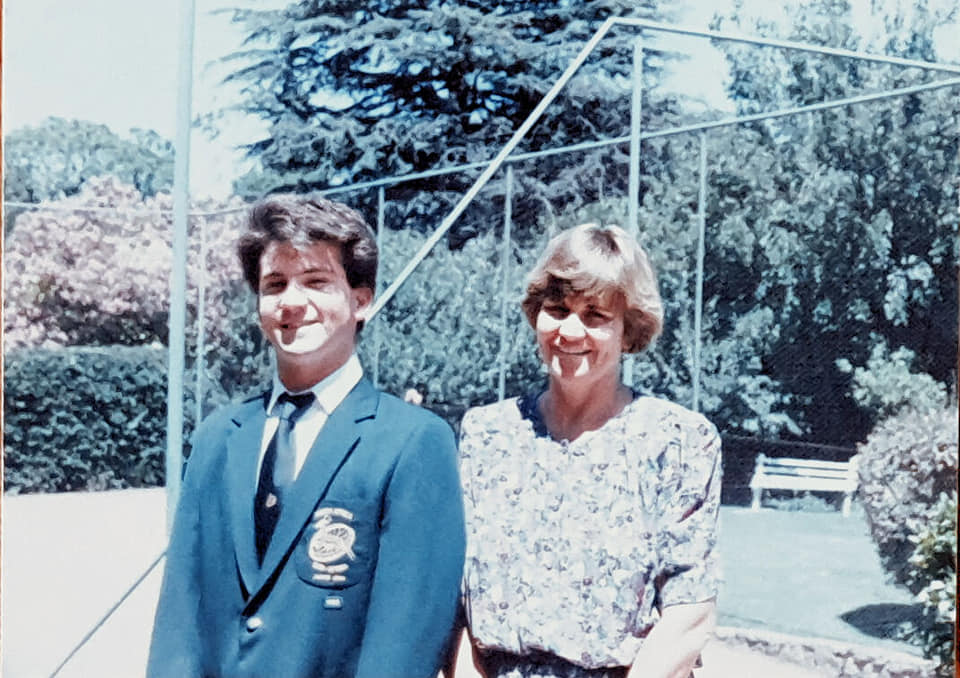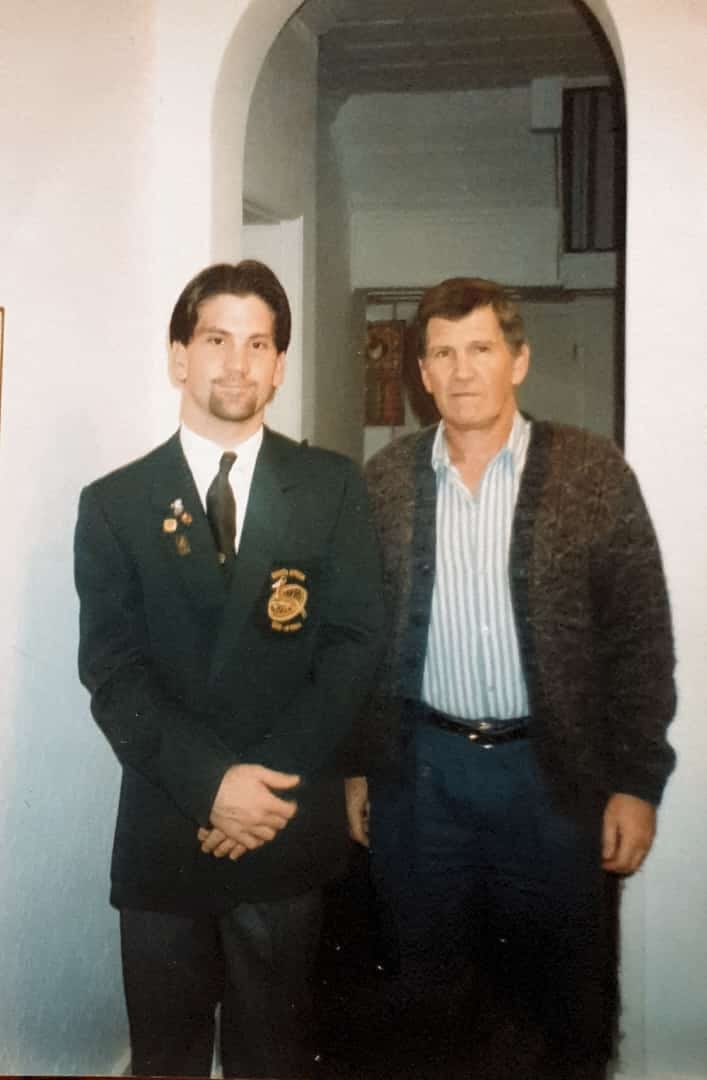In a miraculous turn of events, she survived and thrived, becoming a Paralympic backstroke swimmer and breaking the world record at the Beijing Olympic Games in 2008, where she also won the gold medal.
Sapiro told her story to the SA Jewish Report webinar titled “From ordinary to extraordinary” on Saturday, 29 August, along with English Channel swimmer Dr Karon ‘Kiki’ Marx, and peace negotiator Liat Amar Arran.
She said her original dream was to become an Olympic gymnast, as her mother had represented South Africa in gymnastics, and she assumed this was the path she would follow. But this changed when she began swimming with a friend after school. Gymnastics began to lessen in importance as she fell in love with the water. Clearly a talented all-rounder athlete from a young age, Sapiro soon overtook her friend as their school’s top swimmer.
“Swimming became my entire life. I knew I wanted to be an Olympic swimmer. I was doing double sessions every day from the age of nine or 10 years old. At 13, I was chosen to represent South Africa at the junior nationals, but then I had my accident, so I couldn’t go.”
Sapiro related how she fell while water-skiing on the Vaal Dam on that fateful day. Her parents put up a red flag to warn other boats she was in the water, but “another speedboat drove straight over me. The propeller came in at my naval, basically ripping my body in two. The only thing keeping my legs attached to my body was the inner skin in my groin. My pelvic girdle was separated into nine pieces and my hip joint was completely detached. When my parents pulled me out the water, my mom had to ‘catch’ my left side and push it up into the speedboat,” said Sapiro.
She was airlifted to Union Hospital in Alberton, where she spent the next eight months flat on her back in traction. Doctors told her parents that it was unlikely she would survive, and if she did, she would never be able to walk again. But the teen had other ideas, and always knew she would walk one day – and hopefully swim too. “The first time I stood up was for only 10 seconds before I fainted. I used crutches for a long time. The one half of my body [from the abdominals downwards] was completely paralyzed.”
She had to re-learn how to walk, and then swim. In spite of the shock and loss she had to endure at just 13, Sapiro said she never felt angry or despondent.
She spent two years at Netcare Rehabilitation Hospital in Auckland Park, and it was here that the physiotherapist suggested disability swimming. At first, she was against it. “But eventually my mom convinced me. There were disability galas once a month. I swam the 50-metre freestyle, and broke the South African record.
“That’s when I started training hard. My accident was in 2004, and by 2008, I had managed to make it all the way to the Paralympics in Beijing.” She broke the 100-metre backstroke world record and came away with a gold medal. She was also South Africa’s youngest ever Paralympian.
Reflecting on that race, Sapiro said that just before it started, the only thing she could hear was her own heart beating. “When I finished the race and looked at the board to see gold medal and ‘new world record’ next to my name …” Her voice became emotional as she struggled to finish the sentence, but she felt a huge sense of relief, as the pressure she was under was immense.
“You can’t put into words what that moment is like. It changes you for the rest of your life. It was so surreal. You’re working on it for four years, with blood, sweat, and tears. Then after three weeks, it’s over.”
After Beijing, “My career just took off. I trained in the early morning for a few hours, then I would do school, then by midday, I would be in the gym lifting weights, then more school, then in the evening, I would be back in the pool for a few hours.” She is grateful that her coach insisted that she get her matric as well as train.
In spite of painful shoulder injuries, Sapiro won a bronze medal at the Paralympics in London in 2012. “To walk away with bronze was one of my proudest moments because I had to work so much harder for it.” She even went on to compete at the Paralympics in Rio de Janeiro in 2012, and then retired. She said most athletes retire after one Olympic Games, so she is proud to have competed in three.
“Sometimes I can’t believe this is what my life became,” she said. “If it wasn’t for the accident, I don’t know if it would have materialised, and I’m so humbled by it. I couldn’t be more grateful for the journey.”
How did she do it? “I’m a ‘100% person’. If I take on a task, I’m 100% committed. It’s like I have tunnel vision – the whole world outside my goal becomes irrelevant.” She now teaches swimming and gets much joy in seeing youngsters progress in the sport. She hopes to start her own swimming academy one day. “I want to teach people what it means to fall in love with water.”
As a role model for the able-bodied and disabled, “I have so much responsibility to show what it means to endure hardship and accept our bodies,” she says. “I have the biggest scars all my over my body, but I want to show that no matter what your body looks like and what it can do, that’s okay.”
In an interview with Heslop Sports, she said, “I grew up in a Jewish home, and I believe that G-d presents everyone in the world with opportunities. We just need to be brave enough to take them. G-d has given me the strength to become the person and athlete I am today.” On the webinar, she said she might settle in Israel one day.
To anyone overcoming obstacles she says, “Everything you need exists inside you. No matter what life throws at you, you’re going to be okay.”
